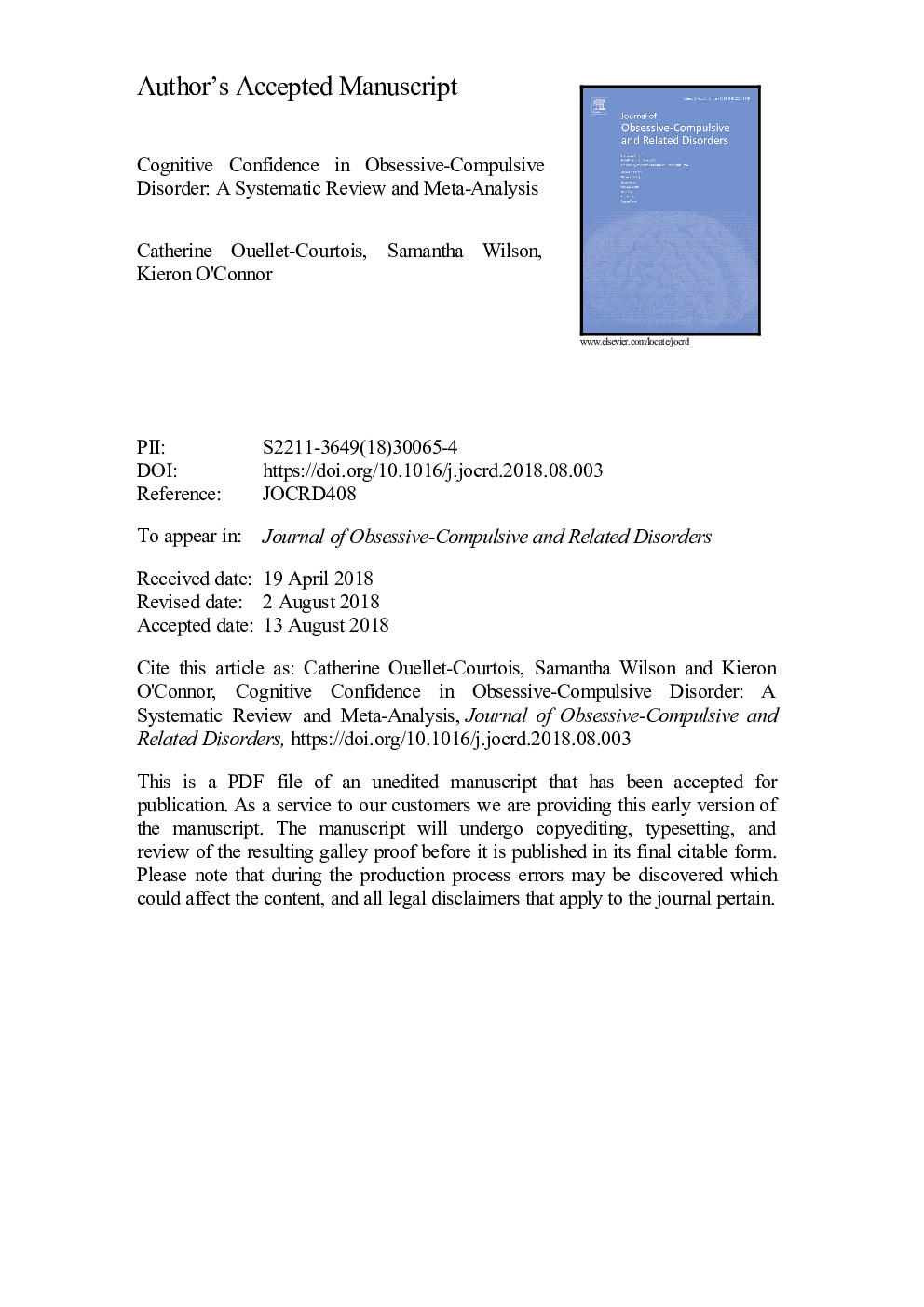| Article ID | Journal | Published Year | Pages | File Type |
|---|---|---|---|---|
| 9952954 | Journal of Obsessive-Compulsive and Related Disorders | 2018 | 42 Pages |
Abstract
A lack of cognitive confidence, defined as a distrust of one's attention, perception and memory, may be implicated in obsessive-compulsive disorder (OCD) and could account for its core symptoms, such as checking and other compulsions. This paper reviews the evidence for lower cognitive confidence in OCD with primary checking and across other OCD subtypes, when compared to clinical and healthy controls (HC). Method: PubMed and PsycINFO databases were searched. A total of 36 studies were retained (nâ¯=â¯36). Results: Experimental studies revealed that individuals with OCD present lower cognitive confidence than HC. No clear effect emerged when individuals with OCD were compared to clinical controls, or when individuals with checking symptoms versus those with non-checking symptoms were compared. The same pattern of results emerged from the self-report studies. Self-report studies had sufficient sample size and comparable designs allowing for meta-analyses. When comparing OCD to HC, effects were large. However, when comparing OCD to clinical controls, no significant effect emerged. Conclusions: Individuals with OCD may have lower cognitive confidence than HC, but evidence for the specificity of cognitive confidence to OCD is limited. This review highlights suggestions for future research, namely the use of idiosyncratic tasks.
Related Topics
Health Sciences
Medicine and Dentistry
Psychiatry and Mental Health
Authors
Catherine Ouellet-Courtois, Samantha Wilson, Kieron O'Connor,
